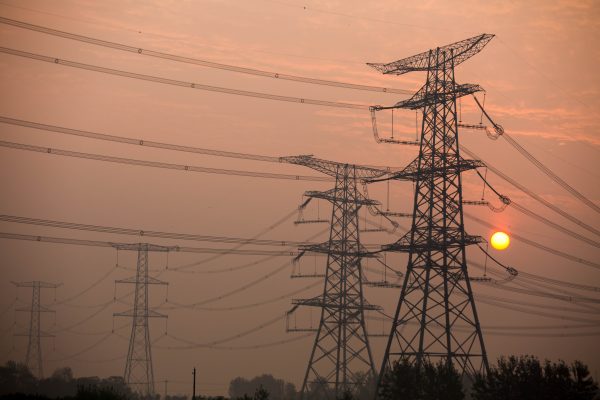Prominent economists such as William Nordhaus and Thomas Piketty are advocating the imposition of carbon border taxes on imports from polluting countries. These calls are founded on the fear that levies on carbon-intensive production simply push production to countries where it is not taxed. Those imposing such border taxes might also claim legitimacy under General Agreement on Tariffs and Trade (GATT) Article XX which allows measures necessary to protect human, animal or plant life.
There is however no evidence of growth of widespread pollution havens. The International Energy Agency reports that by 2019 global energy-related carbon dioxide (CO2) emissions had flattened, with strong renewables growth in China and India. China, Japan and South Korea have each recently set target dates for zero net carbon emissions.
Trade sanctions carry the risk of protectionist capture and of being a brake on the very economic development needed to fund the transition to cleaner energy and, now, to tackle the economic disruption from COVID-19 and the associated acceleration of digitisation.
Carbon border adjustments — tax levied on imports from countries without carbon pricing mechanisms — are becoming an integral part of EU trade policy, and US president-elect Joe Biden has also expressed support for them.
These sanctions may take the form of unilateral action by Europe and the United States or be applied through EU and US preferential trade agreements (PTAs) in the Asia Pacific and elsewhere. The EU–Japan agreement, for example, contains commitments that the European Union could invoke to promote a more aggressive approach to trade and the environment, including that parties shall cooperate to promote the contribution of trade to the transition to low greenhouse emissions (Article 16.4). Similar risks are inherent in negotiation of the Australia–EU PTA.
As for the United States, Joe Biden has made it clear that any consideration of US re-engagement in the Trans-Pacific Partnership will depend on stronger commitments being made on the environment and labour. Such commitments could involve trade penalties.
Advocacy of these measures should be rebutted at every opportunity, but it is not enough just to say ‘no’ to trade sanctions. The energy transition is not assured and more needs to be done. Despite their movement in the right direction, China, Japan and South Korea still fund the majority of new coal-fired power plants. Fortunately, there are other trade-related measures that can be taken to serve environmental ends and which, importantly, involve reducing rather than increasing distortions to trade.
Two such measures have been on the World Trade Organization’s (WTO) agenda for years but are proving frustratingly difficult to advance: attempts to reduce fishing subsidies and negotiations to liberalise trade in environmental goods and services. While this work should be maintained and accelerated — within a hopefully revitalised WTO — two other measures might yield more immediate results.
The first is action in the WTO to reduce fossil fuel subsidies. The elimination of fossil fuel subsidies would, according to the International Monetary Fund, reduce global CO2 emissions by up to 23 per cent. Some WTO disputes have targeted government support for renewable energy, giving grounds to also target policies supporting fossil fuel-based energy.
Two implementation challenges would need tackling. First, the link between domestic subsidies and trade needs to be demonstrated. This can be done by invoking the Anti-Dumping Agreement to determine that energy-subsidised exports constitute exporting at less than normal value and so are open to retaliation. Second, to avoid social disruption in fossil-fuel-dependent developing countries, mitigating development assistance policies need to be implemented, coordinated by a body such as the G20.
Global fossil fuel subsidy reductions could spur reform in Australia. Support to fossil fuel consumption has increased significantly in Australia over the past decade, with revenue forgone equivalent to over 40 per cent of the energy-related tax take, a high share by OECD standards.
A second necessary area of action — again with implications for Australia — is to ensure that the ongoing US–China tech war and ill-advised pursuit of decoupling does not bring further collateral damage to vital cooperation with China on renewable energy. Australia’s export of education services in electrical engineering to Chinese (and other) students has supported the development of solar PV panel manufacturing plants in China for export to Australia and the rest of the world. Trade openness is thus vital to the energy transition.
Looking ahead, as countries move to ’smart energy’ policies that depend on digital grids, Australia’s expertise in information and communications technology, and data science will become an increasingly valuable tradable service. Trade has a direct role to play in the pursuit of environmental goals as a facilitator, not a weapon, that can benefit all countries involved.
Ken Heydon is a visiting fellow at the London School of Economics. He is formerly an Australian trade official, Deputy Director-General of the Office of National Assessments and senior member of the OECD secretariat. His latest book is The Political Economy of International Trade: Putting Commerce in Context (Polity, 2019).

